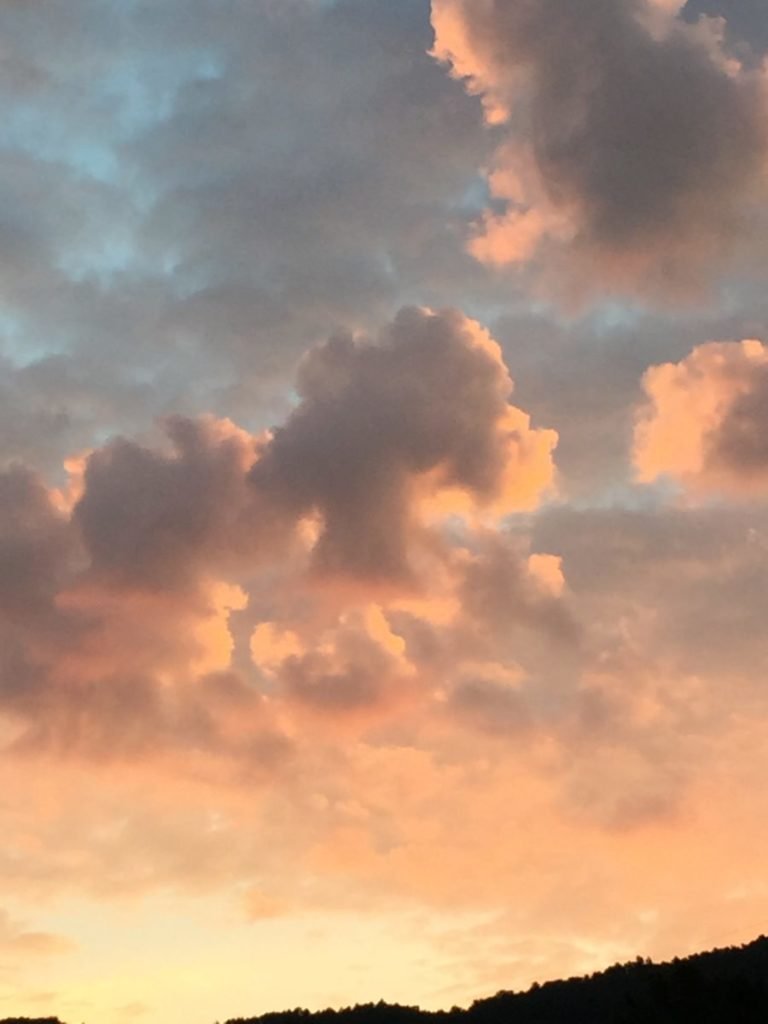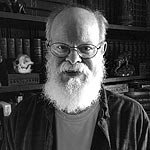
“I change, but cannot die.” Shelly “The Cloud”
As my wife and I are on our morning walk, I often comment on the clouds above: the constant change they float themselves through, the subtlety of hues they dress in, the animal shapes and deities we conjure.
And one day I must have said I’d like to paint clouds once too often—forget that I am not much more than an occasional house painter— because next birthday my kind and, no doubt, loving wife presented me with an online course simply titled Painting Clouds. With tabletop easel, a few filbert brushes, tubes of oil pigments, I began; it would have been hypocritical not to at least try.
As I dabbed storybook purity onto the ombre wash of blue, I thought clouds, like thoughts, are nothing more than molecules condensed around a speck of dust, so infinitesimal as to dance on a lift of air, diaphanous as fog. They are the dreams of ponds and lakes and oceans. Pretty fantastic when you realize that clouds can be gigantic, miles wide, thousands of feet high.
Clouds are usually benign, allowing airplanes entry, but it is not hard to imagine Zeus throwing lightning from his dark moods. His tantrum can send a deluge down mountains, scouring valleys, driving houses and barns like so much stampeding debris. Floods are defining moments, perhaps. The drowned and lost become ghosts, as clouds for the survivors will forever seem to be.
I have approached my clouds the way I apprenticed myself to woodcarving, to the craft of writing poetry— by observation, mistakes, and practice. Following John Constable’s example, I painted many ‘cloud studies’; not, to be sure, as convincingly as him or indeed, any of the grand 19th century masters of landscape: Bierstadt, Cole, or any of the dozens of contemporary postings to be found on Pinterest. A great landscape painter must first conquer clouds.
But I have retreated to my comfort zone and have written a few poems about the process of capturing clouds, a sort of piggy-back from something ephemeral to something concrete and back to ephemeral once more, using the paintings as poems, the poems as paintings in a cycle of how art (writing) transforms us.
Unlike microbes or mysterious ‘dark matter’, clouds are readily observable, as The Cloud Appreciation Society proudly promotes, but clouds are much more than a scientific sounding taxonomy. We have made them metaphors, in spite of the tech-world’s highjack of their benevolence by generating the generic “The Cloud” which demeans this essential and archetypal source as if data storage is a necessity for what makes us human.
After many paintings, I have come around to simplifying my notion of beauty, (a better part of wisdom) though not to three humps and vertical lines underneath, recognizable by the Hopi as a symbol, perhaps a prayer, for life-sustaining rain. Clouds, like the pregnant idea, signify ineffable promise, unrealized wisdom. Their inspiration manifested in rain is the profound consequence: words can be the gentleness of a spring shower or the provocation of disaster.
To extend this conceit further, the reader could be considered the necessary evaporation to complete the cycle, visually absorbing the ink from the page, the meaning arriving at its destination in the brain which, come to think of it, looks suspiciously like a cloud.
We may find a penny or two on the sidewalk, see the first dandelion in someone’s front lawn, but we always notice a cloudless sky like an emptiness no words can fill. We walk in silence listening to a distant crow, knowing clouds are gifting themselves somewhere else.

Share this post with your friends.

